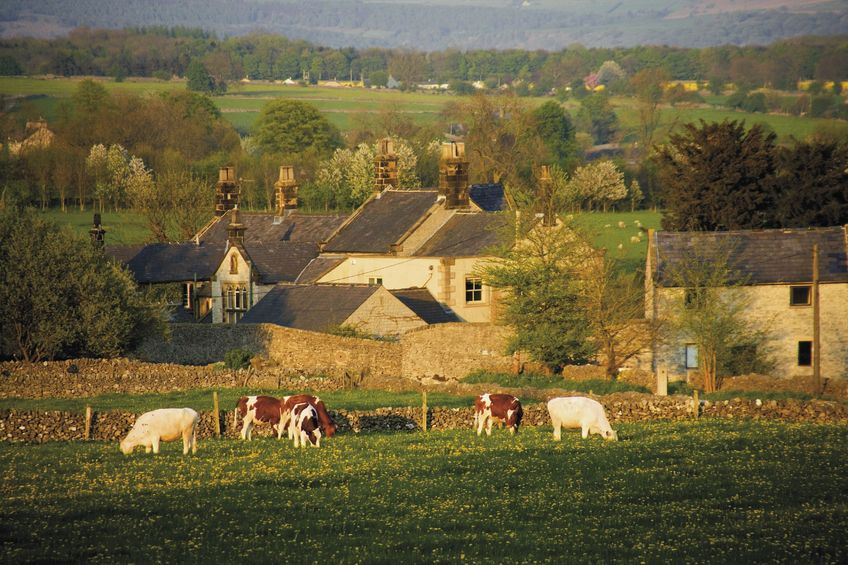Rewilding can help the 'environment and farmers' from flooding, says new report

A new report has been released that suggests 'rewilding' the UK's natural landscape is the best option for coping with flooding.
Rewilding Britain, the organisation behind the report, says a growing body of evidence suggests that managing flood risk naturally, by restoring natural processes, can be cheaper and more sustainable.
Flooding costs the UK economy more than £1 billion annually, a figure which can rise to nearer £5 billion in a bad year.
Traditional approaches to flood defence have focused on managing flood risk using hard defences such as flood walls and river revetments.
The organisation said that while traditional methods mitigate some of the worst consequences of flooding, these solutions do "little to challenge underlying causes and when they fail, the consequences can be devastating."
The report comes as MPs on the Environmental Audit Committee gather to find better ways to manage the UK’s environment post-EU referendum, with many calling for an approach which places nature centre stage.
'Vibrant' natural landscapes
Rewilding Britain says rewilding can be cost effective, and has 'additional benefit'.

"It can create vibrant natural landscapes which stimulate tourism and ecological awareness, while also soaking up greater quantities of CO2, helping bring the economy towards carbon neutrality," Helen Meech, director at Rewilding Britain said.
"With one in six properties in the UK currently at risk of flooding, a situation likely to be exacerbated by climate change over coming decades, it is time to rethink our approach to managing flood risk.
"Flooding is a natural part of a river’s annual cycle but problems occur when land is overgrazed, rivers are straightened and trees and wildlife removed.
"Such measures reduce the capacity of the landscape to absorb excess water and slow floodwater flows.
"Our report highlights the ways in which rewilding can substantially reduce flood risk downstream, protecting communities at a fraction of the cost of traditional flood defences.
"Rewilding also has benefit of improving water quality and stimulating the revival of vibrant ecosystems rich in wildlife.
"With MPs currently consulting on new approaches to management of Britain’s natural environment post-Brexit, we feel it is high-time we allowed landscapes the space they need to rewild, creating natural wetlands and bringing back the wildlife that was once common to Britain," Miss Meech said.
'Idealistic' thinking
However, many rural organisations disagree with this approach, with the NFU saying it is "idealistic", and that rewilding and farming need to work together in order for it to work.
"You have to go back hundreds, if not thousands, of years to find a Welsh hillside or Lake District uplands where sheep weren’t present and integral to the communities that live there," said Phil Bicknell, writing on the National Farmers' Union website.
"More importantly in my view, they ignore the economic impact. Without our uplands, we wouldn’t have a UK sheep industry.
"The raw materials that leave the farmgate are the source material for the largest manufacturing sector in the UK - our food processors - and that equates to jobs and economic growth," Mr Bicknell concluded.








